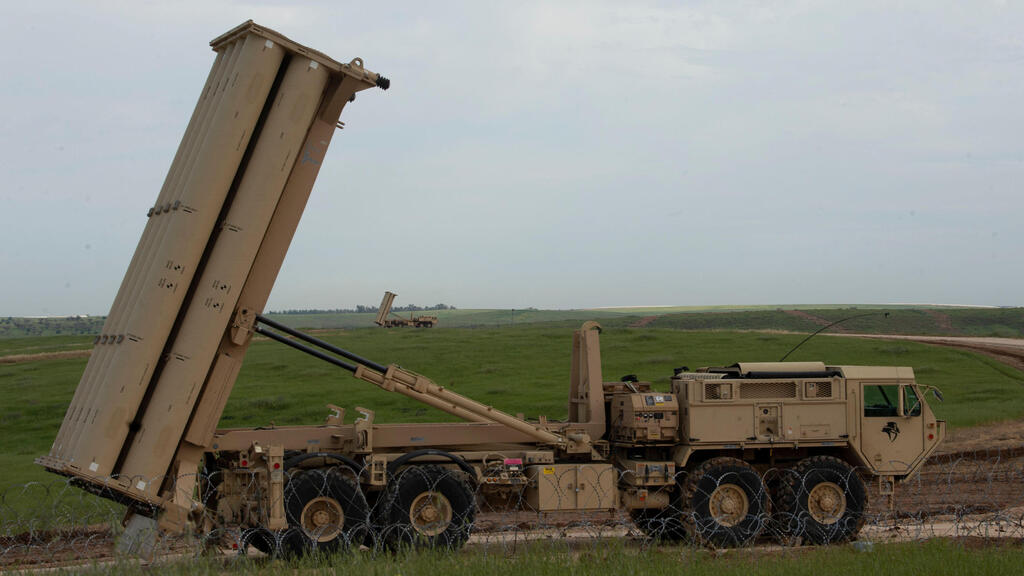Getting your Trinity Audio player ready...
The United States has transferred an additional THAAD missile defense battery to Israel, the Saudi-owned Al-Hadath news channel reported, amid ongoing U.S. military operations in Yemen and growing tensions with Iran.
The report late on Saturday also said two Patriot missile batteries were delivered to Israel, as U.S. President Donald Trump continues to warn that Washington could strike Iran’s nuclear facilities if Tehran refuses to engage in negotiations over its nuclear program.
THAAD missile launched to intercept a rocket from Yemen in December
Before the Al-Hadath report emerged, aircraft tracking sites noted the arrival of a U.S. Air Force C-5M Super Galaxy cargo plane at Israel’s Nevatim Air Base in the Negev. The aircraft, which flew in from Ramstein Air Base in Germany, remained on the ground in Israel for several hours.
The Terminal High Altitude Area Defense (THAAD) system is a mobile, high-altitude missile defense platform with capabilities similar to Israel’s Arrow system. THAAD can intercept ballistic missiles outside the atmosphere using kinetic energy and is designed to target various phases of a missile’s trajectory.
Get the Ynetnews app on your smartphone: Google Play: https://bit.ly/4eJ37pE | Apple App Store: https://bit.ly/3ZL7iNv
According to U.S. media reports, the battery is operated by approximately 100 American personnel stationed in Israel. The first THAAD battery was deployed to Israel in October at the request of the Israeli government. Israeli officials emphasized that the system was not intended to replace existing defense layers but rather to enhance firepower and deterrence in the region.
Brig. Gen. (res.) Zvika Haimovich, former head of Israel’s air defense array, said at the time that “the system parallels the Israeli Arrow and is not an additional defense layer or a replacement. Each battery comes with dozens of interceptors, significantly adding to Israel’s firepower. We saw about 200 intercepts during the last barrage from Yemen, up from around 100 in April. We can expect even more in future scenarios involving Iran, and this addition improves our chances of defense.”
The deployment comes as Trump pushes for direct negotiations with Iran over its nuclear program. On Sunday, Iranian Deputy Foreign Minister Abbas Araghchi said direct talks were not possible under the current threats.
“Negotiating with a party that threatens the use of force and whose officials present conflicting positions is meaningless,” Araghchi said. “We remain committed to diplomacy and are open to continuing nuclear discussions and sanctions relief, based on confidence-building and indirect talks with the United States.”





